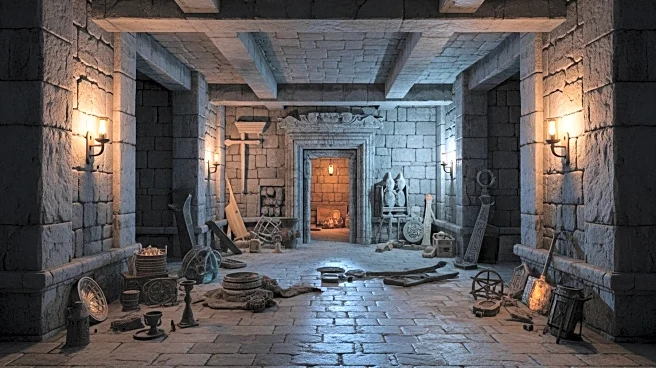What is the story about?
What's Happening?
Archaeologists from the University of Leicester have discovered a 500-year-old dungeon beneath a market square in Leicester, UK. The excavation, part of a £7.5 million redevelopment project, revealed layers of history spanning Roman, Medieval, and Victorian eras. The dungeon, connected to the Gainsborough Chamber, was described as a 'vile prison' by a 16th-century prisoner. The site also uncovered Roman buildings, a Roman infant grave, pottery kilns, and prehistoric tools. The findings provide insights into the daily life and economy of Roman Leicester, with ongoing research focusing on the Anglo-Saxon era.
Why It's Important?
The discovery sheds light on the historical significance of Leicester, offering a glimpse into its Roman past and subsequent eras. The findings contribute to understanding the evolution of urban spaces and societal structures over centuries. The excavation highlights the importance of preserving historical sites and integrating archaeological research into urban development projects. The artifacts and structures unearthed may enhance public interest in history and archaeology, potentially boosting local tourism and educational opportunities.
What's Next?
The market site is set to be repaved and reopened by the end of 2026, with some of the archaeological finds expected to be displayed publicly. Continued research may uncover more about the Anglo-Saxon period, providing further insights into Leicester's history. The integration of these discoveries into public displays could foster greater community engagement and appreciation for local heritage.
Beyond the Headlines
The excavation underscores the ethical considerations in balancing urban development with historical preservation. It raises questions about how modern cities can honor their past while accommodating growth and change. The findings may influence future policies on archaeological practices and urban planning, emphasizing the need for careful management of historical sites.















